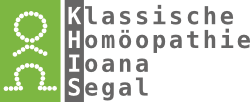
Homeopathy is a medical art and science, which employs infinitesimal doses of natural medicines to stimulate the body's inborn healing capacity. The homeopath strives to understand each patient's individual physical, mental and emotional nature, trying always to prescribe for the person as a whole, rather than the obvious symptom, like the allopathic diagnosis for instance.
The central philosophical point of Homeopathy is called the law of similars, "Similia similibus curentur." Samuel Hahnemann (1755-1843), following Paracelsus and others before him, observed, that a substance which causes an illness or a symptom, can, in very small doses, cure the same problem by stimulating the organism to realign itself.
Homeopathic medicines are quite safe: they are known to be non-allergenic, non-toxic, and free of side effects. They are prepared from herbal, mineral, and animal substances.
The in-depth interview process (called anamnesis) tries to reveal the entire picture of the patient with all the aspects, emotional, physical and mental. The remedy is chosen after the in-depth interview and analysis process. Classical homeopathy, such as that practiced in this office, was originally conceived by Dr. Samuel Hahnemann. It dictates that the prescriber offers only one remedy at a time.






